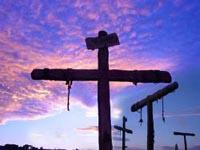
Essays and commentary on faith, culture, music, humor, and medicine, from a physician’s perspective.
Note: The Doctor Is In has a new and updated site:
The Doctor Is In!
Note: The Doctor Is In has a new and updated site:
The Doctor Is In!

Essays and thought-provoking discussions on faith, grace, testimonies and challenges in Christianity

Series
Multi-part essays exploring aspects of addiction, medicine, culture, postmodern thought, and difficult or complex aspects of Christianity.

Music
Videos and commentary on music favorites and artists, including their stories and testimonies.
The history of the Tacoma Narrows bridges, and a fascination personal tour of the construction of the new Narrows bridge.




